2017 Triumph Street Cup Review
Triumphs retro beginner bike gets its hackles up
Last year it was the all-new Street Twin and it was good. Last Friday it was the all-new Street Scrambler, and it too was good if that’s your bag, man. Now it’s the also all-new Street Cup, which also builds on that same Street Twin platform with 900cc High Torque parallel-Twin to create a road-racier version, tested this week at its launch in Spain.
2017 Triumph Street Cup
| Engine | 16.5/20 |
| Suspension/Handling | 13.5/15 |
| Transmission/Clutch | 8.5/10 |
| Brakes | 7.5/10 |
| Instruments/Controls | 4.75/5 |
| Ergonomics/Comfort | 8.5/10 |
| Appearance/Quality | 9.0/10 |
| Desirability | 8.0/10 |
| Value | 7.25/10 |
| Overall Score | 83.5/100 |
2017 Triumph Street Scrambler First Ride Review
In a nutshell, Triumph bolted on rear shocks which are 8mm longer (with slightly firmer dual-rate springs and firmer damping) to raise the rear of the bike, which steepens rake and reduces trail compared to the Street Twin (24.3 degrees/ 98.7mm Cup, 25.1 deg./ 102.4mm ST). Then a lower, more forward handlebar is bolted into the clamps to pull the rider also lower and forward, a flyscreen and a racy tailsection is added, and Bob, as the Brits say, is your uncle.
What it is, is sort of a mini-Thruxton, Triumph says, with that same mission but without all the horsepower and higher price tag. The Thrux uses the High Power version of the 1200cc Twin to produce 97 claimed horsepower and 82.6 lb-ft of torque, weighs a claimed 454 pounds and “starts at” $13,000. The Street Cup uses the High Torque 900cc to crank out 55 hp and 59 lb-ft, weighs 441 pounds and sells for $10,500. Hey, wait a minute, that’s only a $2500 price difference. What happened to $8,700 for the Street Twin?
Not sure, but you do get “an authentic bullet seat” and bar-end mirrors, along with “premium finishes, hand applied coach-lining and exciting two-tone paint schemes.” (Coach lining, as I learned, is that black stripe between the yellow and silver in the photo below. It’s hand-painted by old-world craftsmen at Triumph, who sign each gas tank.)
There’s also the shorter and lighter twin satin black and stainless steel upswept silencers, “for a unique raw, rich and full soundtrack,” which are cool, but even so Triumph says the Cup is 3 kg heavier than the Street Twin; that’s almost 7 pounds. (Their 437 lb claimed dry weight for the ST turned into 478 on the MO scales after we added gas. Just for perspective, that’s about 22 pounds heavier than the heaviest bike [and winner] in our 2015 Superbike shootout, the Aprilia RSV4 RF. And it’s 75 pounds heavier than our favorite “modern” middleweight Twin, the Yamaha FZ-07.)
The “Retro,” in other words, goes clear to the bone. Even though 52.6 rear-wheel horsepower isn’t a lot, I am forced to repeat once again that it feels like more, thanks to the 900cc HT Twin’s excellent torque curve, which has the Cup motoring smartly away from way low in its powerband.
The Cup also shares the Street Twin’s excellent light-pull clutch, flawless five-speed gearbox and excellent, smooth throttle response – and it’s a super-easy bike for anyone from rank beginner to hop on, not stall, and roar off upon. On the Spanish motorway, thanks to the more-forward cant of your torso and to the flyscreen, 90 mph and 5000 rpm feels like a perfectly acceptable cruising speed with minor vibrations beginning to creep into the grips (70 and 80 mph are dead-smooth to my paws): Rolling the throttle on from there dials up 110 indicated pretty quickly with a bit more left (handlebar vibes increasing with velocidad.)
We were frankly surprised at what a great curvy road tool the Street Twin was last year, though we probably shouldn’t have been now knowing the recent track record of Triumph’s testing crew. The Cup is even better. Shifting that little bit more bike and rider weight onto the front tire gives the rider more feedback, decreasing the trail those few millimeters lets the Cup change direction quicker, and those longer shocks out back left my footpeg feelers completely unscathed after a couple hours of excellent curve slaying at a pace which had me sometimes wishing I was was wearing more protective protective gear. None of the heavier fast guys shot any sparks either.
The 270-degree Twin puts out the right noises, shifts cleanly up through the gearbox without the clutch and also down if you time your blip right, which makes it an excellent place to attend the School of Classic Riding. Without a ton of power, you pick your lines and maintain your momentum in a higher gear, relying more on the Cup’s excellent torque than on high rpm horsepower. The longer and slightly stiffer shocks still stroke through 120mm, as does the fork straight off the Street Twin, and both ends are really well controlled and damped under my 160 pounds.
Street Twin commenters last year chastised me severely for not fully explaining why that bike uses a bias-ply front tire and a radial rear. The Cup uses the same Pirelli Phantoms, and this year I cornered Chassis Engineer and ex-roadracer David Lopez with the same question again. He doesn’t know. Extensive testing with all kinds of combinations, he said, kept revealing that the bias/radial combo is just what works best, providing the quickest, most confident handling with good high-speed stability and the best “feel.” Mysterioso, he shrugs. Nobody knows from tires.
Back in rush-hour Seville traffic, I’m not getting any younger, but the lower, more-forward grips aren’t nearly as low and forward as I was concerned they might be – just a little more sporty than the super-comfortable Street Twin. in fact the ergos are so similar that Triumph left the footpegs in the same spot as the ST’s, which is perfectly okay for 5-foot-8 me. (Lopez says a lot of previous-gen Thruxton owners complained their footpegs were too far rearward.)
If retro is your thing, there’s no denying this is a very pretty motorcycle and a very thoroughly designed and nicely put-together one – as well it should be for $10,500. MO never did get a new Thruxton to review after its initial launch, so the only question I’d have to ask myself if I felt my inner Anglophile being drawn toward a new Street Cup is, why not cough up a measly $2500 more for the full monty Thruxton, a bike so rare and beautiful we MOrons can’t even get one?
2017 Triumph Street Cup
+ Highs
- Sporty yet comfy
- 60+ mpg, 10,000-mile oil changes
- Yes, you can get cruise control, heated grips and 150 other high-quality factory chinguses
– Sighs
- The price has crept up from the Street Twin
- A more powerful front brake wouldn’t be a bad thing
- A young motojournalist wanted to know what a rev counter is?
2017 Triumph Street Cup Specifications | |
|---|---|
| Engine Type | Liquid cooled, 8 valve, SOHC, 270° crank-angle parallel-Twin |
| Capacity | 900cc |
| Bore/Stroke | 84.6 x 80mm |
| Compression Ratio | 10.55:1 |
| Maximum Power | 55 Hp (40.5kW) @ 5900 rpm (claimed) |
| Maximum Torque | 59 lb-ft (80Nm) @ 3230 rpm (claimed) |
| Fuel system | Multipoint sequential electronic fuel injection |
| Exhaust | Brushed 2 into 2 exhaust system with twin brushed silencers |
| Final drive | X-ring chain |
| Clutch | Torque assist. Wet, multi-plate clutch |
| Gearbox | 5-speed |
| Frame | Tubular steel twin cradle |
| Swingarm | Twin-sided, tubular steel |
| Front Wheel | Cast aluminium alloy multi-spoke 18 x 2.75in |
| Rear Wheel | Cast aluminium alloy multi-spoke 17 x 4.25in |
| Front Tire | 100/90-18 Pirelli Phantom SportsComp |
| Rear Tire | 150/70 R17 Pirelli Phantom SportsComp |
| Front Suspension | KYB 41mm forks. 120mm travel |
| Rear Suspension | KYB twin shocks with adjustable preload. 120mm travel |
| Front Brake | Single 310mm floating disc, 2-piston Nissin axial floating caliper, ABS |
| Rear Brake | Single 255mm disc, Nissin 2-piston floating caliper, ABS |
| Instrument Display/Functions | Odometer, Rev counter, Gear position indicator, Range to empty, Fuel level, Average and current fuel consumption, Clock, Two trip settings, Service indicator, Traction control settings |
| Length | 82.3 in (2090 mm) |
| Height Without Mirrors | 43.5 in (1105 mm) |
| Seat Height | 30.7 in (780 mm) |
| Wheelbase | 56.5 in (1435 mm) |
| Rake | 24.3º |
| Trail | 3.9 in (98.7 mm) |
| Dry Weight, claimed | 441 lbs (200 kg) |
| Fuel Tank Capacity | 3.2 US Gallon |
| Fuel consumption | 63 US mpg (based on the EPA exhaust emission test procedure) |
| Standard equipment | |
| ABS, Switchable Traction Control, Torque Assist Clutch, LED rear light, Immobiliser, USB Power Socket, Trip Computer | |
More by John Burns



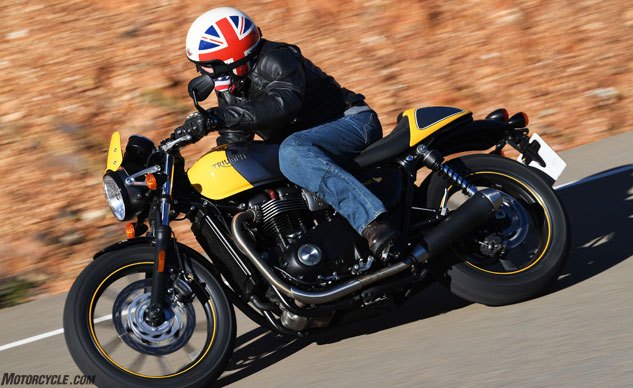
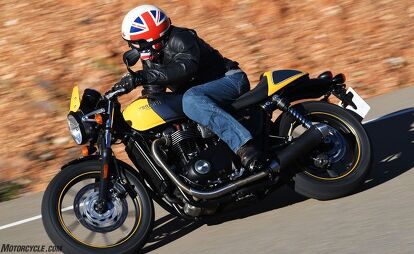























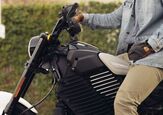
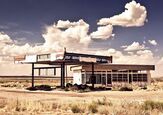
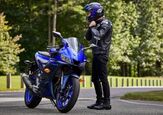
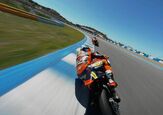
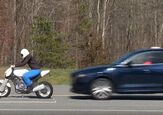
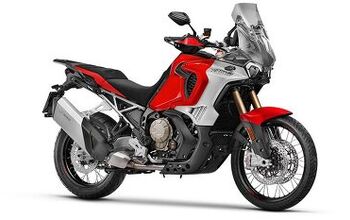
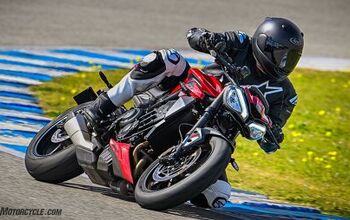
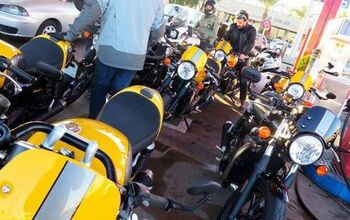
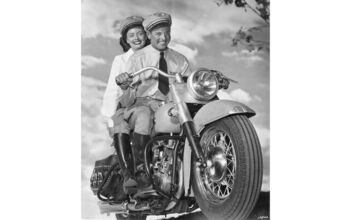

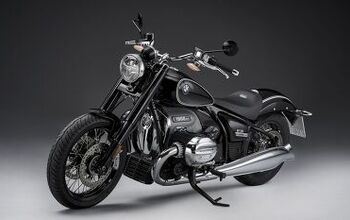
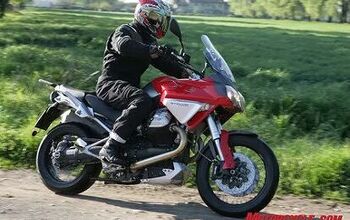
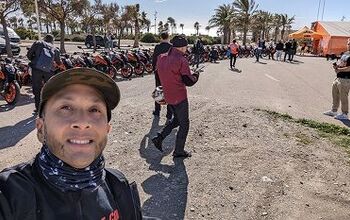
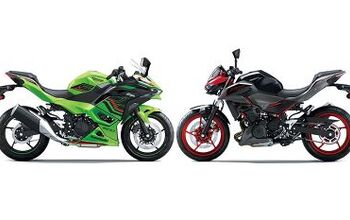
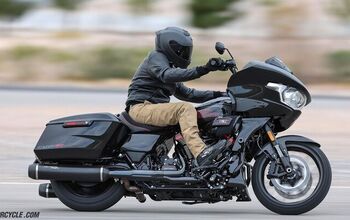
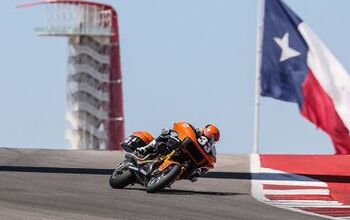
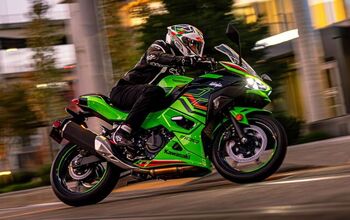

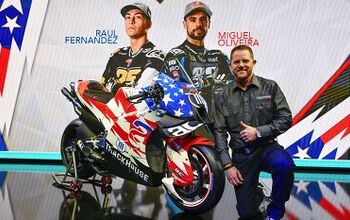
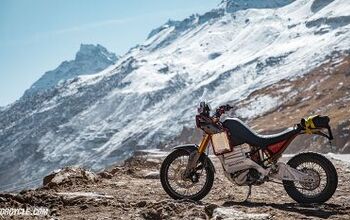
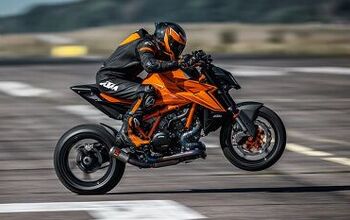
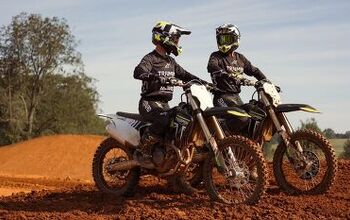
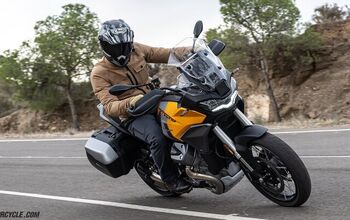
Comments
Join the conversation
The Street Cup has one advantage over the larger and more powerful Thruxton - it runs tubeless tires. Why Triumph can't employ sealed rims on its Thruxtons (not even the R!) so tubeless tires can be used astounds me.
55hp? Seriously? 900cc and all you get is 55hp? My R1 is only 100cc bigger and close to 200hp. And 20# lighter. Pretty bike though. Love the look of the Triumph.